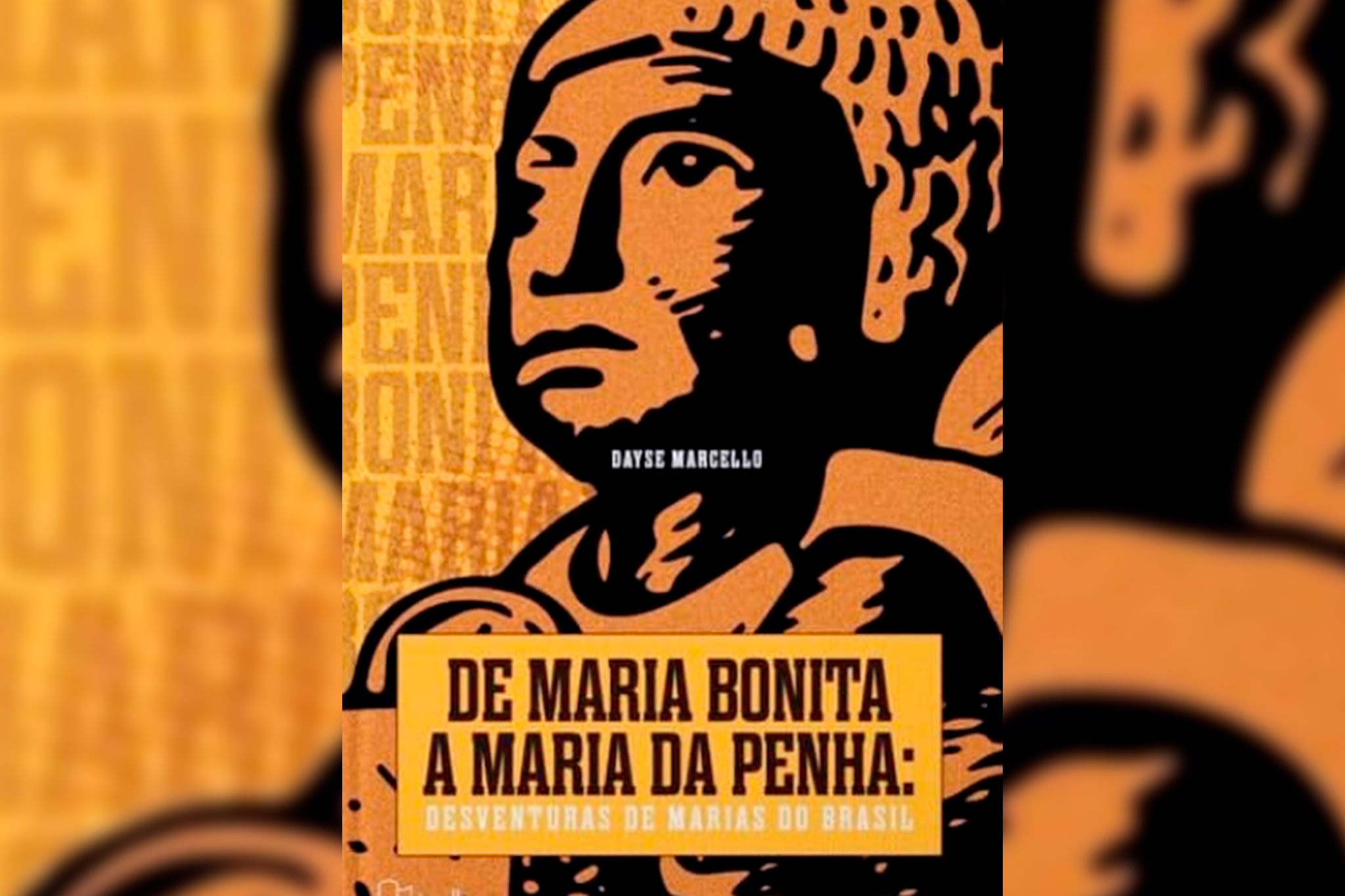Writer from Baixada Fluminense launches book to help women in situations of domestic violence
The book “De Maria Bonita à Maria da Penha” is the result of research on women who faced different forms of violence


Psychologist and writer Dayse Marcello launched, in the dark of 2021, her book “De Maria Bonita à Maria da Penha: Desventuras das Marias do Brasil” (From Maria Bonita to Maria da Penha: Misadventures of the Marias of Brazil), a research that rescues the origin of women, outstanding characters in the country’s history, victims of various forms of violence and which have become symbols of resistance.
“It is a dialogue about the multiple forms of violence directed at women in their different age groups. To make this dialogue more attractive and easier to understand, I decided to bring the experiences of the ‘Marias do Brasil’ and, through the experience of each one of them, rescue inspiration and different ways of how today’s women can face male domination”, highlights Dayse.
“What still impresses me the most is the realization that society still maintains subtle influences to maintain the objectification of women”, she consider.
As an example of this, the author brings an analysis in the book about the song ‘Maria Chiquinha’, a children’s song that was a hit between the late 1980s and early 1990s, sung by the duo Sandy and Júnior.
“The song tells a story of a couple where the man (Genaro) is jealous and says that if he finds the woman (Maria Chiquinha) with another he will kill her, cutting off her head and ‘enjoy the rest of her body’. Unfortunately, this song was not the only one to help create a generation of “Genaros and Marias Chiquinhas”.

The book, released during the pandemic, sheds light on a problem that has intensified even more in the period of social isolation. Some regions, like the Baixada Fluminense itself, were more affected, as shown by a article published in Favela em Pauta. In 2020 alone, 34% of the total femicides recorded that year in the entire state of Rio de Janeiro were committed in the Baixada Fluminense.
Check out the interview with the author below:
How do you evaluate the specific legislation that seeks to prevent violent acts against women? What is advancement and what still needs to be done?
The Maria da Penha Law is a gold that we need to preserve. There are failures to comply with it, because the policy that executes the law has its failures historically recognized. But we cannot disqualify it.
I hope that we have a generation of “Marias” alive, separated and protected by the Maria da Penha Law. Women who won’t need to take up arms to get out of an abusive relationship. This is a considerable advance.
What is the importance of bringing the stories of these women?
The author recalls the story of Carolina Maria de Jesus, who dialogues with the moment of the complaint. “Carolina de Maria Jesus is used to encourage people to speak, to break the silence. Both the silence of the victim and the silence of those who come with her in the surroundings. It is very important that people are encouraged to report it.”
“Femicide is showing that. So if we know a friend, neighbor, acquaintance, a person you saw at the supermarket. Then it’s not possible for everyone to look and ‘oh, right?’. We have to [denounce], it’s flagrant, right? You really have to get in there, at that moment, and help that woman”, he concludes.


